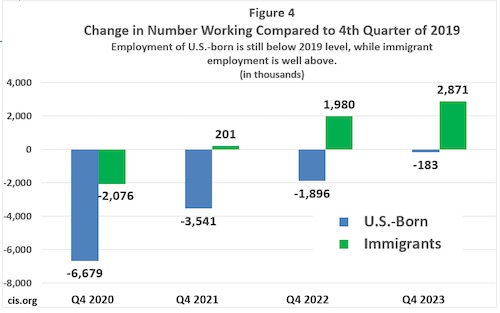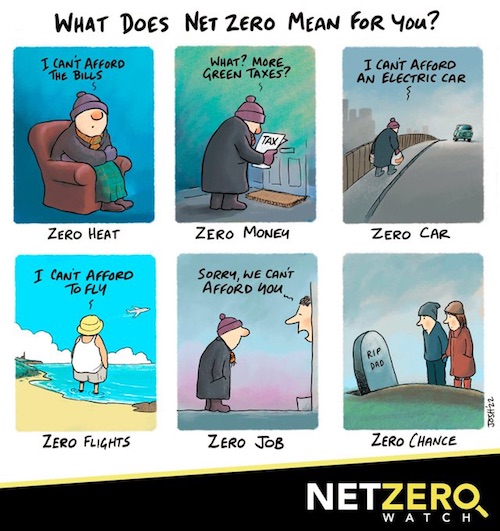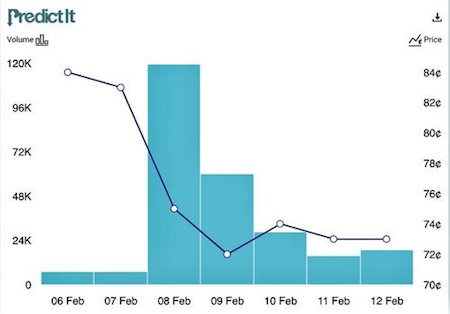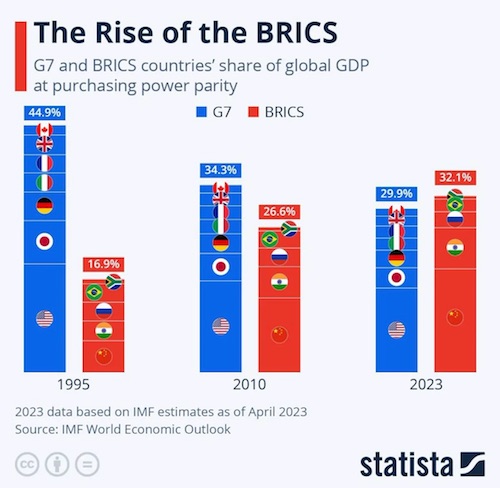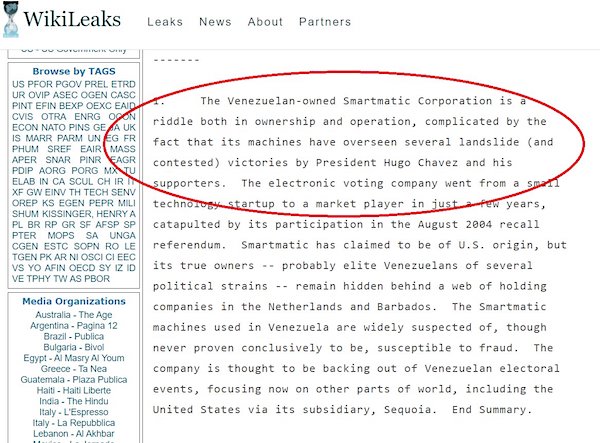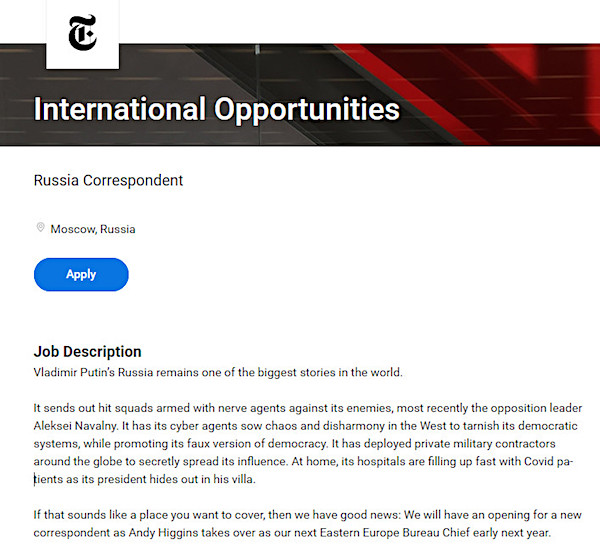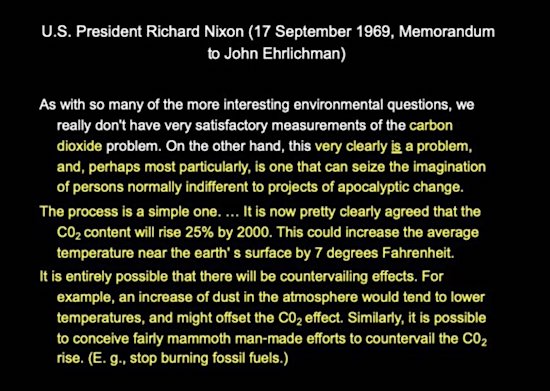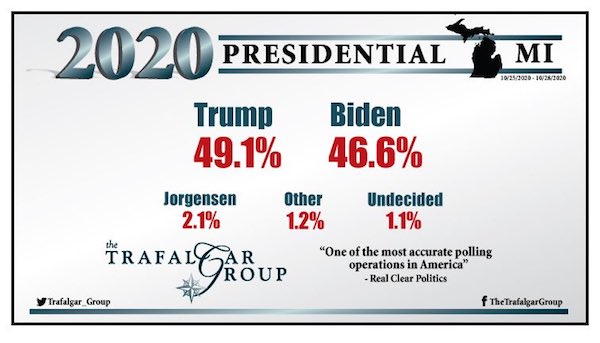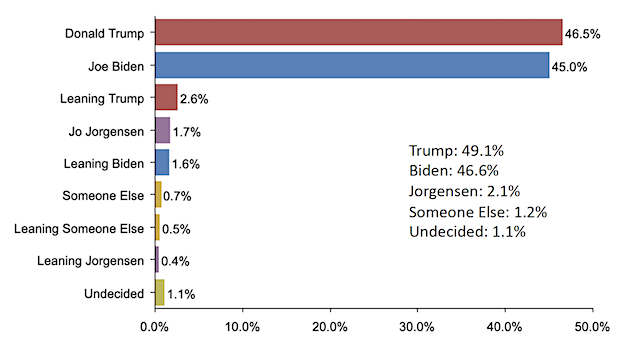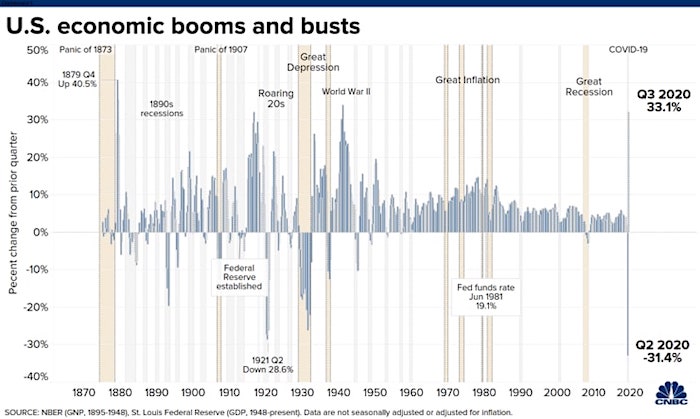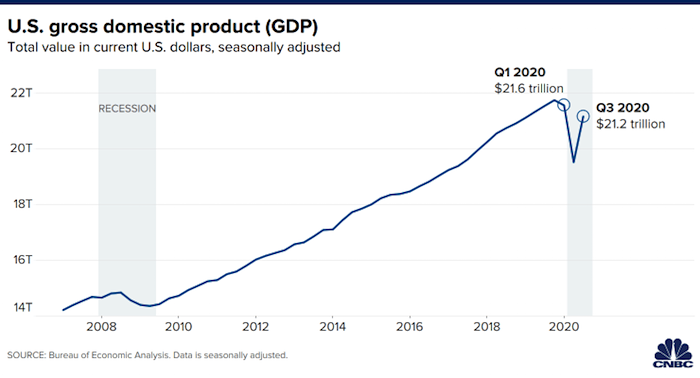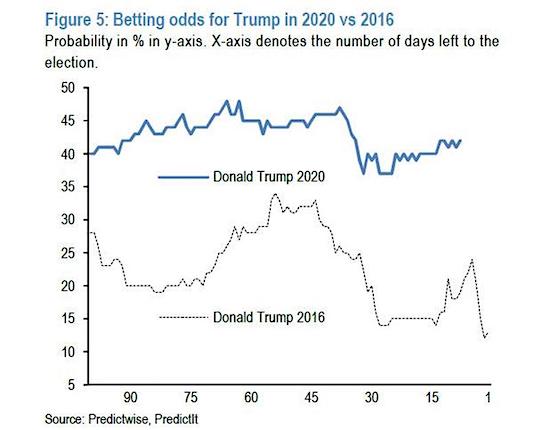
Rembrandt van Rijn Portrait of Rembrandt with gorget 1629

Just gonna leave this here. pic.twitter.com/SqSvxq7gdC
— Natalie F Danelishen (@Chesschick01) June 17, 2025
BANNON: “Why was Tulsi Gabbard not invited to the Camp David meeting?”
TUCKER: “You know why … This is a regime change effort. Why not just say that?” pic.twitter.com/lnZ8JXrWGs
— Chief Nerd (@TheChiefNerd) June 16, 2025
TUCKER: “I don't want my country to be further weakened or destroyed by another one of these wars. And if you can't connect the dots after 25 years of this sh*t, you're either too dumb to participate in the conversation or you're like Mark Levin — just a liar who doesn't care.” pic.twitter.com/54KJMVEt7M
— Chief Nerd (@TheChiefNerd) June 16, 2025
TUCKER CARLSON: The reason I'm speaking out is because if we get dragged into this, we could be witnessing the end of the American empire.
It could effectively end Trump's presidency.
I've seen it happen myself with George W. Bush and Iraq.@TuckerCarlson pic.twitter.com/bFzAEA7hff
— Bannon’s WarRoom (@Bannons_WarRoom) June 16, 2025
Former Trump chief strategist Steve Bannon on how the president’s enemies are working to destroy MAGA with the war on Iran.
(0:00) Will the Iran War Be the Downfall of MAGA?
(6:55) Fox News’ Pro-War Propaganda
(12:42) The Never-Trumpers Pretending to Be On Trump’s Team
(15:30)… pic.twitter.com/PdUZFiUNNZ— Tucker Carlson (@TuckerCarlson) June 16, 2025
TUCKER CARLSON: I was fired from my show because I criticized Zelensky.
So many in the media, government institutions, and Washington, D.C., as a whole are starving for one thing.
War.
That's why the Pentagon has a trillion-dollar budget.@TuckerCarlson pic.twitter.com/gAXsoCoLiU
— STEVE BANNON 🇺🇸 (@Stevebannon_sk) June 16, 2025
"We spent $2 trillion in Iraq, $2 trillion. We lost thousands of lives, thousands in Iraq. We have wounded soldiers, who I love, I love — they’re great — all over the place, thousands and thousands of wounded soldiers. And we have nothing."
– Donald Trump, 10 years ago today
— Jack Poso 🇺🇸 (@JackPosobiec) June 16, 2025
Senate
Col Douglas Macgregor on Iran: Netanyahu controls more US Senators than Trump pic.twitter.com/dwlQKtdDaM
— Ignorance, the root and stem of all evil (@ivan_8848) June 17, 2025
Candace
Donald Trump just completely fractured his base.
And he did it for the very neocons who minted the #NeverTrump movement.Truly unbelievable. pic.twitter.com/ZF9B3TeumR
— Candace Owens (@RealCandaceO) June 16, 2025
Alex
BREAKING: Netanyahu Double Crosses Trump, Says He Will Not Engage In Peace Talks / Wants Regime Change As China Announces They Back Iran, Along With Nuclear-Armed Pakistan
PLUS, He Claims The US Not Backing Israel's War Against Iran Will Threaten/Destroy Our Homeland, "Today… pic.twitter.com/Gq5ksmlL8k
— Alex Jones (@RealAlexJones) June 16, 2025
This is not our war.
But if it were, Congress must decide such matters according to our Constitution.
I’m introducing a bipartisan War Powers Resolution tomorrow to prohibit our involvement.
I invite all members of Congress to cosponsor this resolution.
— Thomas Massie (@RepThomasMassie) June 16, 2025
This is Nick Fuentes almost 2 years ago, the day after oct. 7th, predicting everything that is happening today.
When you can predict the future with this level of accuracy, it tells you that his understanding and model of politics is true.pic.twitter.com/K7NQBper1f
— Red5 (@Red5djedi) June 17, 2025


Elected as peacemaker.
• Trump Eyeing Intervention In Conflict Against Iran (RT)
President Donald Trump is seriously considering getting the US directly involved in Israel’s conflict with Iran as he meets with his national security team on Tuesday, multiple media outlets have reported. The president has lauded the Israeli bombing campaign against Iran’s nuclear facilities but has so far held off on joining offensive operations, opting instead to use US military assets to help West Jerusalem shoot down Iranian missiles and drones. Ahead of a national security meeting in the White House Situation Room to discuss the escalating Middle East conflict, Trump was considering entering the US into the fray, Axios and CBS News wrote on Tuesday.
“Trump was seriously considering joining the war and launching a US strike against Iran’s nuclear facilities, especially its underground uranium enrichment facility in Fordow,” Axios wrote, citing three anonymous officials. West Jerusalem believes the US will “enter the war in the coming days,” the outlet said, citing Israeli officials.nThe decision will be discussed at Tuesday’s meeting, but there is no full agreement among Trump’s closest advisers, CBS News wrote, citing fire sources familiar with the matter. nFordow, a heavily fortified uranium enrichment plant built deep inside a mountain, has been hit with Israeli airstrikes, but there is no indication that its underground section sustained significant damage, according to International Atomic Energy Agency (IAEA) Director-General Rafael Grossi.
The Jewish state lacks the bunker-buster bombs needed to fully destroy the entrenched facility, but US forces deployed in the region both carry the weapons and have the capability to field them, Axios wrote on Sunday. nAccording to National Security Adviser Tzachi Hanegbi, the Israeli campaign against Iran “will not end without damaging the Fordow nuclear facility.” While it is unclear “if the US will join,” Israel is in constant communication with Washington on the matter, he said in an interview on Tuesday. A few hours prior to Tuesday’s security meeting, Trump delivered a chain of militant posts on Truth Social, claiming that the US now had unobstructed primacy in Iranian airspace, boasting that he could assassinate Iranian Supreme Leader Ali Khamenei, and demanding that Tehran capitulate.

“The enemy cannot sustain a long war, and as it continues, the back of the Zionist regime will be broken..”
• Trump Demands ‘Unconditional Surrender’ From Iran (RT)
US President Donald Trump has demanded an “unconditional surrender” from Iran, which has been locked in a heated military conflict with Israel, over the past days. In a series of posts on his Truth Social Trump also claimed that “we now have complete and total control of the skies over Iran.” Hostilities between West Jerusalem and Tehran have been intensifying since Israel’s attacks on a uranium enrichment center, nuclear and military facilities, and a series of drone and car-bomb attacks that killed over a dozen senior Iranian military commanders and scientists as well as multiple civilians. Iran retaliated by firing dozens of ballistic missiles into Israel. The two sides have been exchanging attacks since then. “Unconditional surrender,” Trump wrote in capital letters on Truth Social on Tuesday.
The American president also issued a direct threat against the Islamic Republic’s supreme leader, Ayatollah Ali Khamenei, claiming that the US and its Israeli allies “know exactly” where Khamenei is “hiding.” Trump called him an “easy target” but stated that “we are not going to take him out… at least for now.” “Our patience is wearing thin,” the US president added. Speaking to journalists earlier on Tuesday, the American leader said his goals in the conflict between West Jerusalem and Tehran go beyond a ceasefire, adding that he wanted Iran to forgo “entirely on nuclear weapons.” Israeli Prime Minister Benjamin Netanyahu made similar statements on Monday, when he claimed that Israel was “in control of the skies over Tehran” and told the city’s residents to evacuate.
Tehran signaled on Tuesday that it was ready to continue fighting. “The enemy cannot sustain a long war, and as it continues, the back of the Zionist regime will be broken,” Iran’s defense ministry spokesman, Brigadier General Reza Talayi-Nik, said in a televised interview aired by the Iranian state broadcaster. The general also announced the use of new missile systems as part of retaliatory strikes. “Today, we used one of our missiles for the first time, and the Zionist regime didn’t even realize it had been deployed. They will see more of these surprises,” he said. Iran’s Islamic Revolution Guards Corps (IRGC) reported successful strikes on Israel’s military intelligence logistical headquarters and a Mossad intelligence center in the Tel Aviv area on Tuesday. The targets were hit “despite the presence of highly advanced defense systems,” it said.
West Jerusalem justified its Friday attack by claiming Iran was on the brink of obtaining a nuclear weapon. Tehran has repeatedly denied such accusations, maintaining that its nuclear program is entirely peaceful. In late March, US National Intelligence Director Tulsi Gabbard stated that American intelligence data suggested Iran was “not building a nuclear weapon” and its nuclear arms program had been on hold since 2003. When asked about this assessment on Tuesday, Trump stated that he did “not care what she said.”

“Regime change is more likely in Israel and across Europe than anywhere near Iran,” Marandi said. “These Western governments failed with Russia, failed with China, and they’ll fail with Iran too.”
• ‘If Iran Falls, We All Lose’ (Blade)
Mohammad Marandi, a prominent Iranian academic, political analyst, and adviser to Iran’s nuclear negotiating team, rejects Netanyahu’s claims outright. n“The regime is lying about nuclear programs just to justify aggression and murder,” Marandi told RT. “Tulsi Gabbard, who is the Director of US National Intelligence, just recently said Iran is not developing nuclear weapons. So it’s clear that the issue is Netanyahu, neat escalation, and the Zionist lobby in the United States is behind him.”mnIran’s nuclear program has long been a subject of contention. While Tehran has enriched uranium and developed advanced centrifuge technology, it has consistently denied seeking nuclear weapons. Iranian officials argue that their nuclear program is designed solely for peaceful energy production and medical research – a position grounded, they say, in religious doctrine that prohibits weapons of mass destruction.
To prove its intentions, Iran signed the Joint Comprehensive Plan of Action (JCPOA) in 2015, an international accord with the US and European powers that limited uranium enrichment in exchange for sanctions relief. However, in 2018, then-President Donald Trump unilaterally withdrew the US from the deal, reigniting tensions. Since then, Tehran has allowed international inspectors from the International Atomic Energy Agency (IAEA) limited access to its facilities, but Israel remains unconvinced.nAccording to Marandi, Israel’s true objective lies far beyond neutralizing a nuclear threat.mn“It’s always been so-called regime change,” he said. “Whether it’s the Israeli regime or the Americans or the Europeans. That’s how they are. They don’t want independent countries, and especially countries like Iran, which support the Palestinian cause.”
Marandi is not alone in his assessment. Syrian analyst Taleb Ibrahim, a longtime commentator on Iranian affairs and an author of several books on the Islamic Republic, agrees that Western powers – particularly the United States – are pursuing a broader geopolitical agenda.n“If the United States will put its hands on Iran again [like it was before 1979],” Ibrahim told RT, “they will block the Russian southern wall. This means that Russia will not be able to expand its influence beyond the Caspian Sea. And it will be restricted to a very narrow place between Central Asia and the Arctic.”mnIbrahim warns that China, too, would suffer consequences from a weakened Iran. “China will not be able to reach the Middle East. Because if Iran becomes part of the Western bloc, it will sever China’s access. And the most important thing of all – a new world order will emerge. It will be a new American world order.”
Ibrahim believes this is not a regional conflict, but part of a sweeping strategy to restore American hegemony. “To make America great again is to regain American control across the globe. The war in Iran is just a chapter in that plan.” President Donald Trump has thus far distanced himself from the Israeli operation, saying America’s goals are purely defensive and promising that he will not be starting any wars. But Ibrahim is unconvinced. “In strategy, if you want to make war, talk about peace,” he said. “The United States is preparing for a very big war – first against China, then Russia. After this, they will try to build an American century. One government for the world, headquartered in the White House. That’s the final goal.”
Both Marandi and Ibrahim agree that forced regime change in Iran would unleash chaos across the region. The fall of Tehran’s current government could lead to the fragmentation of Iran – a multi-ethnic nation with Kurds, Azeris, Arabs, and Baloch who may pursue autonomy or independence in the power vacuum. It could ignite sectarian warfare akin to what unfolded in Iraq after the 2003 US invasion, and destabilize fragile neighbors like Iraq, Afghanistan, and even Turkey. Moreover, Iran’s alliances with Hezbollah in Lebanon, the Houthis in Yemen, and various Shia militias across Iraq and Syria mean that a collapse in Tehran could trigger cascading violence across the Middle East. Global oil markets, already rattled, could see disruptions on a historic scale.
Yet, both experts maintain that such an outcome is unlikely. “Regime change is more likely in Israel and across Europe than anywhere near Iran,” Marandi said. “These Western governments failed with Russia, failed with China, and they’ll fail with Iran too.” Ibrahim agrees: “It is impossible to make regime change in Iran by force. The Iran-Iraq war was designed to do exactly that – to overthrow the Islamic Republic established by Ayatollah Khomeini. But after eight years of war, billions of dollars, and support from the US, France, and Gulf states, Iran survived – and emerged stronger. The only way to change the regime is through the Iranian people. And right now, the Iranian people are standing with their leaders. They believe they are fighting the Satan – the US, the bigger Satan, and Israel, the smaller one. And that gives them unity and strength.”
As Israel continues its campaign and the international community watches nervously, the implications of the current conflict are far from limited to the Middle East. “This war,” Ibrahim concluded, “will be the starting point of reshaping the world. If Iran wins – and I believe it will, eventually – the world will shift to a multipolar order. That is the shared vision of Iran, Russia, and China. But if Iran loses, we will all live under an American empire. The White House will rule from Washington to Beijing. This is a decisive battle – not just for Iran, but for the destiny of the world.” As missiles fly and rhetoric intensifies, what began as a regional standoff may ultimately determine the balance of power in the 21st century.

What is she thinking now?
• ‘I Don’t Care What She Said’ – Trump Dismisses Tulsi Gabbard’s Iran Claims (RT)
US President Donald Trump has said he believes that Iran was “very close” to obtaining a nuclear weapon, contrary to the assessment of his director of national intelligence, Tulsi Gabbard. In late March, Gabbard said that the US intelligence community “continues to assess that Iran is not building a nuclear weapon and Supreme Leader Ayatollah Ali Khamenei has not authorized the nuclear weapons program he suspended in 2003.” When asked about the stance of his spy chief by journalists on Tuesday, Trump replied: “I do not care what she said.”
“I think they [Iran] were very close to having them,” the president stressed, referring to nuclear weapons. Gabbard, a former Democratic congresswoman who joined the Republican Party during last year’s presidential campaign, was confirmed by the US Senate as the director of national intelligence in February, following heavy scrutiny and a heated debate. During her political career, the former presidential candidate and Iraq War veteran has been a fierce critic of the US intelligence community that she currently leads, and was known for her support for NSA whistleblower Edward Snowden.
🇺🇸🇮🇷 In March, Tulsi Gabbard — Director of National Intelligence — testified that Iran wasn’t building a nuclear weapon.
Today, Trump replied: “I don’t care what she said. I think they were very close to having one.”
So now the U.S. administration is openly contradicting its… pic.twitter.com/1mjcz4ulOn
— DD Geopolitics (@DD_Geopolitics) June 17, 2025
#BREAKING ☢️🇺🇸⚡🇮🇷 Director of National Intelligence Tulsi Gabbard issues a strange and shocking nuclear warning, warning an incoming nuclear Holocaust and call others to ‘Reject this path’.
Is she signaling something from inside US government to outside that we don't know? pic.twitter.com/ustH3kdSMd
— Monitor𝕏 (@MonitorX99800) June 17, 2025

Tucker’s not alone.
• Trump Calls Tucker Carlson ‘Kooky’ Over Israel-Iran Position (RT)
US President Donald Trump blasted conservative talk show host Tucker Carlson on Monday, calling him “kooky” after the journalist questioned Washington’s support for Israel following its strikes on Iranian nuclear facilities. Israel launched attacks on Iran’s uranium enrichment and reactor sites starting last Friday, claiming it was a preemptive move to stop Tehran from acquiring nuclear weapons. Carlson, normally a Trump ally, condemned supporters of West Jerusalem’s military escalation and hosted guests on his program who shared similar views. ”Somebody please explain to kooky Tucker Carlson that, ‘IRAN CAN NOT HAVE A NUCLEAR WEAPON!’” Trump wrote on his social media platform.
On Friday, Carlson denounced “those who casually encourage violence” and urged Trump not to back Israeli military action against Iran. He argued that the fundamental divide today is not between those supporting West Jerusalem and those backing its adversaries, but “between warmongers and peacemakers.” Carlson also discussed the role of Israel in US foreign policy during a recent interview with Columbia University economist Jeffrey Sachs. The host remarked that warnings about Iran being “weeks away” from developing nuclear weapons have circulated for more than two decades. Sachs, a vocal critic of the entrenched unelected bureaucracies in the US known as the “deep state,” argued that Israel was aiming for regime change in Tehran.
Sachs noted that Iran was the final country on a list of seven that the George W. Bush administration had intended to “take out” in five years, beginning with Iraq. The list, as described by retired US Army General Wesley Clark, also included Syria, Lebanon, Libya, Somalia and Sudan. These nations have all been targeted either through direct US military action or covert operations, the economist said, adding that all were perceived as hostile by Israel.
”America has been doing Israel’s bidding for 30 years. Because of the Israel lobby. Because of the concocted idea that this is US security,” Sachs said. He argued that “arrogance in Washington is the first point of reference” in foreign interventions, asserting that policymakers “don’t believe this is hard.” In a separate interview Monday with former Trump strategist Steve Bannon, Carlson raised concerns that Middle East hostilities could “blow up” the so-called MAGA coalition which fueled Trump’s political resurgence in the 2024 election cycle. Bannon warned that “the American people are 90% against forever wars,” and said Trump faces a crucial battle against the deep state if he is to advance his agenda.

“..what we don’t know is, have they been brought to their knees fully so that they realize that in order to have a country, they have to talk?”
• White House Seeks Meeting With Iran’s Foreign Minister As Iran Eases Strikes (ZH)
As tensions soar and Americans anxiously contemplate the possibility of yet another major US war in the Middle East, the Trump administration has been in contact with the Iranian government, discussing a possible meeting this week between Iranian Foreign Minister Abbas Araghchi and US envoy Steve Witkoff, Axios reports, citing “four sources briefed on the issue.” The outlet also says Trump officials reassured Middle East allies that the administration doesn’t plan to join the war unless Americans are targeted — a clear red line that incentivizes Israel to find a way to drag Iran across it, or to fabricate an incident altogether, much as Israel did in 1954’s famed “Lavon Affair.” An Arab diplomat in deep contact with Iran says the red line is already very much in mind in Tehran: “The Iranians are very careful so far not to do anything that can push the U.S. to get involved.”
Following those reports, Iran over Monday night pared back the pace of its heavy bombardment of Israel, after consecutive nights of deadly, damaging strikes demonstrating the power of Iran’s hypersonic missiles. In a new twist, however, Iran hit Israel with a daylight barrage on Tuesday morning — albeit one that was reportedly modest in volume, perhaps only 20 missiles. Of course, there’s nothing modest about it if you happen to be in one of the impact areas:
One of several footages, triangulation of which have allowed to suggest that IDF's Intel gathering unit 8200 was hit in Herzliya, outside Tel Aviv: pic.twitter.com/R7UhYFxmN1
— Bashkarma🇺🇸🌏🇷🇺 (@Karmabash) June 17, 2025
Earlier on Monday, Israel struck various targets in Iran, including the state-run television network IRIB in mid-broadcast (though it quickly resumed broadcasting with the same host). The IDF also claimed it killed a highly senior Iranian general who himself succeeded another general assassinated in Israel’s opening of the war. The Axios reports come in stark contrast to a stream of bellicose rhetoric emanating from Trump, along with potentially ominous moves of US military assets. On Monday, Trump used social media to say that “everyone should immediately evacuate Tehran!” Also yesterday, Fox News reported that the USS Nimitz-led aircraft carrier group was steaming toward the Middle East from the South China Sea, where it will join the already on-station USS Carl Vinson strike group. At the same time, a large number of military refueling aircraft were being deployed to Europe.
Even if the reports of US diplomatic outreach are true, from Iran’s perspective, little or nothing the Trump administration says can be trusted, and even ostensibly peaceful overtures must be evaluated as a potential tactic to set up a surprise US strike. After all, Israel’s initiation of a war on Iran came two days before American and Iranian delegations were scheduled to meet in Oman for a sixth round of discussions pursuant to a new deal about Iran’s nuclear program. Since Israel’s attack, Trump has repeatedly stated that he knew about it in advance, saying for example that “We were well-informed about everything,” and “I always knew the date.”
Here’s what one official told Axios about the pursuit of a new meeting: “A meeting with the Iranians this week is under consideration…They do want to talk. But what we don’t know is, have they been brought to their knees fully so that they realize that in order to have a country, they have to talk? And assuming they get there, is there any degree of [uranium] enrichment you would allow them to have?”
The suggestion that Iran is anywhere close to being “on its knees” seems fanciful, considering Iran has launched multiple missile barrages, the effects of which have significantly exceeded expectations. Two dozen Israelis have been killed and at least 400 injured, with the country also enduring major hits to government buildings, apartment towers and power plants. The starring role in those barrages has been played by Iran’s highly advanced hypersonic missiles — a weapon that neither Israel nor even the United States has in its arsenal:
Another video of an Iranian Hypersonic missile hitting Israel.
These missiles cannot be stopped.
By anything. pic.twitter.com/qkbmtRN5UP
— ADAM (@AdameMedia) June 15, 2025
The unnamed official’s rhetorical question about whether there’s “any amount of enrichment” the US would allow may offer a glimmer of hope for an end to the Israel-initiated war. Iran sees enrichment as a right it possesses as a sovereign state, and has repeatedly said an outright ban on enrichment is completely out of the question. Iran has long been under a religious order, or “fatwa,” forbidding the development of any weapon of mass destruction, and the country has long assured the world that it has no intention of building a nuclear weapon — an assurance the US intelligence community validated in 2007 and has repeatedly re-confirmed since then — most recently, just this March. Meanwhile, anti-Iran hawks have been warning of an imminent Iranian nuclear bomb for more than three decades.

“The Western camp’s attempts to manipulate the global nuclear non-proliferation regime and use it to settle political scores”..”
• Israel Risking ‘Nuclear Catastrophe’ – Moscow (RT)
Israel’s ongoing strikes against Iran’s nuclear facilities pose unacceptable threats to international security and risk plunging the world into a catastrophe, Russia’s Foreign Ministry has said. Israel began bombing Iran on Friday, claiming Tehran is nearing the completion of a nuclear bomb. Iran has dismissed the accusations as groundless and retaliated to the Israeli military operation with waves of drone and missile strikes. “The ongoing intensive attacks by the Israeli side on peaceful nuclear facilities in Iran are illegal from the point of view of international law, create unacceptable threats to international security and push the world towards a nuclear catastrophe,” the Russian Foreign Ministry said in a statement published on Tuesday.
The conflict’s escalation risks the further destabilization of the entire region, the ministry added, urging the Israeli leadership to “come to its senses and immediately stop raids on nuclear installations.” The harsh reaction to Israel’s attack on Iran from most of the international community illustrates that the Jewish state is only supported by countries acting as its “accomplices,” the Russian Foreign Ministry said. Israel’s backers pressured the International Atomic Energy Agency (IAEA) board to push through last week’s “biased anti-Iranian resolution” on Tehran’s nuclear program, which “gave West Jerusalem a free hand, and led to this tragedy,” according to the ministry.
“The Western camp’s attempts to manipulate the global nuclear non-proliferation regime and use it to settle political scores” are costing the international community dearly, and are “completely unacceptable,” it added. A day before Israel’s attack on Iran, the IAEA’s board declared Tehran to be in breach of its nuclear non-proliferation treaty (NPT) obligations. Just weeks prior, Reuters reported, citing anonymous diplomats, that the US, UK, France and Germany were preparing to push the UN nuclear watchdog’s board to declare that Iran had broken the NPT. Tehran has repeatedly stressed that its nuclear program is peaceful and accused Israel of using its military operation to “scuttle” Iran’s talks with the US.

“He has no idea why I am now on my way to Washington, but it certainly has nothing to do with a Cease Fire. Much bigger than that..”
• Trump Snubs Zelensky Meeting (RT)
US President Donald Trump has left the G7 summit in Canada early, despite having a scheduled meeting with Ukraine’s Vladimir Zelensky, the White House has said, citing the recent escalation in the Middle East. White House Press secretary Karoline Leavitt said on Monday that the US leader is departing the gathering in Kananaskis, Alberta, “so he can attend to many important matters.” She also wrote on X that Trump “had a great day at the G7,” but “because of what’s going on in the Middle East, [he] will be leaving tonight after dinner with Heads of State.” Zelensky had been scheduled to meet Trump on the sidelines of the summit in what was widely perceived as an opportunity to urge the US to ramp up sanctions against Russia and approve more weapons shipments to Kiev.
Trump, however, has been reluctant to increase pressure on Moscow, with media reports suggesting that he is frustrated with both Ukraine and Russia, and is considering withdrawing from the peace process altogether. French President Emmanuel Macron suggested that Trump’s early departure was linked to ceasefire negotiations between Israel and Iran. “There is indeed an offer to meet and exchange,” Macron said. “The US assured they will find a ceasefire, and since they can pressure Israel, things may change.” Trump, however, pushed back on the claim shortly afterward, rebuking “publicity seeking” Macron for what he saw as disseminating falsehoods. “He has no idea why I am now on my way to Washington, but it certainly has nothing to do with a Cease Fire. Much bigger than that,” he wrote on the Truth Social network.
The recent Middle East escalation kicked off after US–Iran talks on a potential nuclear deal ended up at an impasse. Iran has dismissed a US demand to completely eliminate its uranium enrichment capabilities while not ruling out a potential agreement in itself. Tehran has also insisted it is not seeking to create a nuclear weapon, and that its atomic program is for peaceful purposes only. As the diplomatic process stalled, Israel last week launched several waves of strikes on Iranian nuclear and military sites, killing top commanders and nuclear scientists. Iran retaliated with massive missile strikes on Israel, while the US has backed West Jerusalem’s right to self-defense while reinforcing its assets in the region to protect its long-time ally. Washington, nevertheless, urged Tehran to return to talks.

Russia worries.
• Israel Uninterested In Russian Mediation of Conflict With Iran – Kremlin (RT)
Israel has so far shown no interest in peacefully settling the conflict it initiated with Iran, despite Russia’s offer to mediate a dialogue between the two nations, Kremlin spokesman Dmitry Peskov has said. Commenting on the recent series of mutually devastating strikes between Israel and Iran, Peskov sounded the alarm over what he described as “galloping escalation”. “The situation is continuing to escalate rapidly. The level of unpredictability is absolute,” Peskov told reporters on Tuesday. He emphasized the need for both sides to exercise “maximum restraint” in order to prevent tensions from completely spiraling out of control.
Peskov underscored that Russia stands ready to play its part in facilitating a potential diplomatic solution. “President [Vladimir] Putin said that Russia would be ready to provide such mediation services,” Peskov told reporters on Tuesday. “At present, we see reluctance, at least on the part of Israel, to seek any kind of mediating services or to move onto a peace track.” After Iran-US talks on a potential new nuclear deal ended up at an impasse, Israel last week launched several waves of strikes on Iranian nuclear and military sites, killing top commanders and nuclear scientists. Iran, in turn, retaliated with massive missile strikes on the Jewish state.
In another sign of escalating tensions, US President Donald Trump, a long-time ally of Israel, urged residents of Tehran to flee the city, while Israeli Prime Minister Benjamin Netanyahu appeared to hint that eliminating Iran’s Supreme Leader Ayatollah Ali Khamenei could be considered an option for ending hostilities. Following the strikes, Putin held separate phone calls with Iranian President Masoud Pezeshkian and Israeli Prime Minister Benjamin Netanyahu to discuss options for de-escalation. Later, Trump held a phone call with Putin, which also revolved around the Middle East conflict, saying he was open to his Russian counterpart taking on a mediating

“..a genuine ‘America First’ policy must not obey Israel. Hence, stay out of the war against Iran. Or to be precise, get out of it.”
• MAGA’s Civil War: Who Dares To Take On The Israel Lobby? (Amar)
Steve Bannon – the smart, stubborn, and irrepressible right/far-right public intellectual and once ally as well as chief strategist and bestie of US President Donald Trump – is back in the news. And in a way that speaks to much more than the ups and downs, and ins and outs, of US elite careers. The hill he has chosen to fight on this time is resistance to the US waging another war in the Middle East in the service of Israel and its powerful lobby in America. Bannon, make no mistake, is not taking a de facto stand against Israel because of its apartheid, genocide, and wars of aggression. He ought to, obviously, especially as a man flaunting his Christian belief. (From one sort-of-Roman-Catholic to another, Steve: Our Lord Jesus Christ really didn’t like the child killers, and I am pretty sure he would have found the lingerie-camouflage cross-dressers with machine guns rather off-putting, too.)
But then, if Bannon had principled moral objections here, he would not be Steve Bannon, a very conservative American, who will probably never shake off deeply ingrained mental habits of violence and racism.nBut from Trump’s perspective – and that of the Israeli influence agents surrounding him – Bannon’s line of attack is actually more dangerous than a genuinely moral stance. Because Bannon is positioning American national interest against following Israel’s lead. By declaring that Israel pursues an ‘Israel First’ policy about as egotistically as Berlin’s ‘Germany First’ trip between 1933 and 1945, Bannon has dared to state the obvious: Israel’s interests are not identical with those of the US, and therefore, a genuine ‘America First’ policy must not obey Israel. Hence, stay out of the war against Iran. Or to be precise, get out of it.
And there Bannon is of course right and has the facts and logic on his side, which makes his challenge all the more threatening.mThe background to Bannon’s sally, which as the Financial Times points out, signals a split among Trump’s domestically indispensable MAGA base, is the perfect mess Trump and his team have made over the attack on Iran. Despite their clumsy mixed messaging – really, contradictory lying and boasting – Israel’s unprovoked war of aggression against Iran can obviously only be waged because of massive American support.mIn reality this is already a combined US-Israeli attack, and it makes no difference to this fact that Israel always wants even more, including – as Axios, a network with remarkably easy access to Israeli sources, has reported – open US help in attacking the key Iranian nuclear installations at Fordow.
Never mind, by the way, that deliberately striking a nuclear facility is as criminal as it gets. It constitutes a clear breach of the Geneva Conventions, as the former head of the International Atomic Energy Agency (IAEA) Mohamed ElBaradei has recently had to publicly school German Foreign Minister Johann Wadephul about. The latter is clearly just as ignorant of his job’s basics as his legendarily inept predecessor Annalena Baerbock used to be. Yet, as Bannon’s intervention shows, the key role the US plays in the assault on Iran has caused noteworthy ripple effects inside America and in particular inside the movement now known as MAGA. Originally the abbreviation was an extremely successful 2016 Trump campaign slogan – inspired by a forerunner used by Ronald Reagan in 1980 – meaning ‘Make America Great Again’.
But as a movement, MAGA has a much longer history. Its influences and ancestors include, for instance, nativism, isolationism, the original America First, and the more recent Tea Party. That’s why it is important to understand that MAGA overlaps with but is not identical with Trumpism, as often assumed. In reality, MAGA is part of an older, powerful tradition that Trump has tapped into with great success. But he is not guaranteed to always be in control of it, as the term ‘Trumpism’ may misleadingly imply.

But not a full ban.
• TV Networks Face Advertising Apocalypse After Pharma Restrictions (ZH)
Last week independent Senators Bernie Sanders (VT) and Angus King (ME) introduced legislation that would ban pharmaceutical companies from promoting prescription drugs directly to consumers – including through television, radio, print, digital platforms, and social media. Today, Bloomberg reports that the Trump administration is now ‘discussing policies that would make it harder and more expensive for pharmaceutical companies to advertise directly to patients.’ Although the US is the only place, besides New Zealand, where pharma companies can directly advertise, banning pharma ads outright could make the administration vulnerable to lawsuits, so it’s instead focusing on cutting down on the practice by adding legal and financial hurdles, according to people familiar with the plans who weren’t authorized to speak publicly on the matter.
The two policies the administration has focused in on would be to require greater disclosures of side effects of a drug within each ad — likely making broadcast ads much longer and prohibitively expensive — or removing the industry’s ability to deduct direct-to-consumer advertising as a business expense for tax purposes, these people said. If this happens, it would mark a major victory for Health and Human Services Secretary RFK Jr., who says he believes Americans consume more drugs than people in other countries due to the ability of US drug companies to directly advertise to consumers.
While running for president, Mr. Kennedy said he would issue an executive order removing pharmaceutical ads from television, citing overmedication and industry influence on news coverage. As we noted last week, the move would mark a sweeping shift in the U.S. advertising landscape, where pharmaceutical companies are among the largest spenders. Prescription drug brands accounted for roughly 13 percent of all ad spending on linear television in 2025, totaling approximately $2.18 billion so far this year, according to iSpot data. In 2024, the industry spent $3.4 billion on traditional TV ads between January and August alone, according to ad-tracking data.
Since 1997, when the Food and Drug Administration relaxed disclosure requirements for DTC ads, pharmaceutical companies have increasingly leaned on consumer advertising to drive demand. Under current rules, companies need only disclose a drug’s “most important” risks during commercials. The result has been a media environment saturated with pharmaceutical messaging. Drug ads made up 24.4 percent of all advertising minutes on evening news broadcasts across major networks — including ABC, CBS, CNN, Fox News, MSNBC, and NBC — through May of this year, according iSpot. On CBS Evening News, pharmaceutical companies appeared in more than 70 percent of commercial breaks, per Kantar Media.

A not so slow suicide.
• EU Bosses Back Total Russian Gas Ban (RT)
The European Commission has proposed phasing out all remaining Russian gas imports to the EU by the end of 2027.Energy Commissioner Dan Jorgensen unveiled the plan which would ban new gas contracts with Russia from 2026 and “full phaseout” a year later, on Tuesday, after it was approved by European Commission President Ursula von der Leyen. The controversial legislation, which is opposed by Hungry, Austria and Slovakia, and reportedly by Italy, is expected to be proposed as trade law that does not require unanimity among bloc members to become law, the Financial Times has reported.
Hungarian Foreign Minister Peter Szijjarto called the plan “absolute insanity,” warning it could fuel price hikes and undermine national sovereignty. Prime Minister Viktor Orban has vowed to block the move. ”Today, we have decided to close the tap on Russian gas,” Jorgensen said in Strasbourg, “because the less energy we import from Russia, the more security and independence we will have in Europe.” Jorgensen told reporters the phaseout was not linked to the Ukraine conflict but rather because “Russia has weaponized energy” against the EU. He added: “Irrespectively of whether there is a peace or not … this ban will still stand.”
The proposed regulation will now move through the EU’s co-decision legislative process, requiring approval from both the European Parliament and the Council. Unlike sanctions, the proposal would not need unanimous backing from all member states – only a qualified majority in the Council, the Commission said, noting it would continue “working closely” with governments most affected by the planned phaseout.A reinforced majority means having the support of at least 15 of the EU’s 27 member countries, representing at least 65% of the EU’s population, according to Reuters. “Nobody will be able to veto [the proposal],” Jorgensen said, as quoted by media outlets. He warned that those who do not implement the measures would face “legal consequences as for any other EU legislation.”
While pipeline flows have dropped sharply since 2022, EU imports of Russian LNG have soared. Russia supplied 17.5% of the bloc’s LNG in 2024, trailing only the US at 45.3%, according to industry data. France, Spain, and Belgium accounted for 85% of the EU’s LNG imports from the sanctioned country, according to the Institute for Energy Economics and Financial Analysis (IEEFA). Russia maintains that it is still a reliable supplier, while denouncing Western sanctions and trade restrictions targeting its exports as illegal under international law. The country has successfully shifted exports to ‘friendly’ markets, it added.

Suicide is not Trump’s thing.
• Russia Sanctions Would Cost Us ‘Billions’ – Trump (RT)
US President Donald Trump has said he is not ready to introduce tougher sanctions against Russia despite pressure from allies, Bloomberg reported on Tuesday. Trump expressed concern that additional punitive economic measures would cost his country “a lot of money.”The American leader has repeatedly said he is weighing new sanctions on Moscow, but has so far stopped short of adopting any. Speaking with reporters at the G7 summit in Alberta, Canada, he said he first wants to see “whether or not a deal is signed.”v“When I sanction a country that costs the US a lot of money, a tremendous amount of money,” Trump said.
“It’s not just, let’s sign a document – you’re talking about billions and billions of dollars. Sanctions are not that easy. It’s not just a one-way street.”vRepublican Senator Lindsey Graham has advocated massively increasing sanctions in a bill he introduced earlier this year. It includes, among other measures, 500% tariffs on countries that purchase Russian oil and gas, should Moscow refuse to engage in peace negotiations with Ukraine. Graham, who later suggested exceptions for countries that provide military aid to Kiev, described the proposed measures as “bone-breaking” for Russia.
Last week, US Treasury Secretary Scott Bessent warned that the proposed sanctions could undermine diplomatic efforts, and urged lawmakers to give the Trump administration greater flexibility to negotiate with Moscow and Kiev.Trump told journalists earlier this month that the Senate had prepared “a very strong bill,” and that Washington would “use it if it’s necessary.” However, the president reportedly asked Senate Republicans to delay putting it to a vote. Senator Roger Wicker, the top Republican on the Senate Armed Services Committee, said Trump had indicated he was not yet ready to support it.vDuring their latest round of direct negotiations in Istanbul, Russia and Ukraine both put forward proposals to end the conflict. Moscow’s plan would require Kiev to accept the loss of five regions which joined Russia in referendums, pull back its troops from those territories, and adhere to neutrality.
Ukraine’s Vladimir Zelensky dismissed that plan as an ultimatum and ruled out territorial concessions or neutrality. He also insisted on a full 30-day ceasefire as a precursor to negotiations – a condition which the Kremlin has rejected.vThen President Joe Biden cut most contacts with Moscow in 2022 over the Ukraine conflict and imposed sweeping sanctions on Russian officials and companies. Trump has since criticized Biden for eschewing diplomacy and vowed to negotiate a peace deal between Russia and Ukraine. Moscow has welcomed Trump’s initiative, but progress on reaching a settlement has been slow.

Different causes.
• Midair Emergencies Force Four Boeing Dreamliners To Divert India Flights (RT)
Four Boeing 787 Dreamliners on international flights to India have been forced to turn back due to technical issues over the past few days, according to media reports. On Sunday, a Hyderabad-bound Lufthansa flight from Frankfurt returned to the German airport midway through the journey based on a suspected bomb threat, according to sources quoted by the media outlet India Today. Air Traffic Control (ATC) at Hyderabad airport received a message that the Boeing 787-9 Dreamliner was returning to Frankfurt after having taken off.nOn Monday, Air India flight AI315 was forced to return to Hong Kong just 15 minutes after taking off, Reuters reported.
The airline confirmed the incident, citing a “technical issue” as the reason for the return, but did not provide further details. The Boeing 787-8 aircraft successfully landed without incident, and alternate arrangements were made for the passengers. Also on Monday, a British Airways flight carrying 214 passengers to Chennai was forced to dump fuel and return to London after the pilots reported a suspected technical issue, Business Insider reported. “The aircraft returned to Heathrow as a standard precaution after reports of a technical issue,” a BA spokesperson told the website, adding that there was no “emergency landing.” nIn a similar incident, passengers on an Air India San Francisco-Mumbai flight were asked to deplane in Kolkata on Tuesday after a snag was detected in the left engine during a scheduled stop, delaying the onward journey by hours, an India Today report said.
These developments come just days after an Air India 787-8 crashed shortly after takeoff in Ahmedabad, killing 290 people. Officials told the Associated Press that early indications suggest the aircraft may not have been correctly configured for takeoff. There have been numerous complaints, whistleblower revelations and concerns regarding the safety of Boeing 787s, according to media reports. In 2019, a New York Times report revealed that John Barnett, a former quality manager who retired in 2017, had filed a whistleblower complaint alleging subpar work on the 787s. In January 2024, another whistleblower alleged that the Dreamliner’s fuselage had improper connections, with gaps that could cause it to break apart in flight.

“More government debt means lower growth, more taxes generate weaker receipts, and more government spending perpetuates inflation..”
• Only Bitcoin, Gold Can Stop Governments from Destroying the Currency (Lacalle)
Allow me to remind you of a few uncomfortable truths. Government spending is out of control in developed nations. Furthermore, no interventionist government wants to cut spending or balance the budget. Government spending empowers politicians, and reducing it means losing the grip on the economy. Interventionist governments aren’t concerned about debts, deficits, or inflation. Inflation is a deliberate policy, and interventionist governments seek to nationalize the economy while imposing total control over productive sectors by issuing continuously devalued currencies. Government spending is printing money. Politicians are happy to promise more free stuff by endlessly spending because they know they won’t pay for it and that it will make citizens and businesses more dependent and submissive to political power. No government can truly reduce debt without cutting spending.
Inflation is evidence of the loss of solvency for the issuer of money. It is a de facto slow default. Inflation serves as a policy that justifies and perpetuates significant government imbalances, shifting the financial burden onto real wages and deposit savings. The fallacy of balancing the budget through higher taxes leads to economic stagnation and more debt. High taxes are not a tool to reduce debt but to justify high indebtedness. Tax receipts are cyclical whereas government expenditures are consolidated and annualised. No interventionist government is going to willingly act to reduce debt and spending because they can always tax more and blame others for their problems. Furthermore, central banks have stopped playing the essential role of curbing fiscal excess to become enablers of rising fiscal imbalances.
Central banks play a crucial role in the fiat world due to the intertwining of monetary and fiscal policy. The system will gradually collapse if central banks do not stop the growth of government fiscal imbalances. However, the independence of central banks is diminishing daily, and their policies tend to conceal excessive government spending and debt. Meanwhile, governments ignore the fact that they have surpassed the three limits of government debt: economic, fiscal, and inflationary. More government debt means lower growth, more taxes generate weaker receipts, and more government spending perpetuates inflation. Now that central banks have stopped being the essential limit to government excess, there are only two alternatives: gold and Bitcoin.
Gold has already overtaken the euro as the second largest asset after the US dollar in global central banks. In a few months, it will be the largest asset. Global central banks have lost confidence in sovereign debt from developed countries as a reserve asset. Thus, developed nations’ long-term bond yields rise above inflation rate expectations. Bitcoin, on the other hand, has shown investors and citizens that a decentralised currency can gradually become a low-volatility reserve asset, a generalised means of payment, and a unit of measurement. As global citizens see Bitcoin as an increasingly viable alternative to fiat money, more are using it to store value and protect themselves against inflation. Investors do not trust developed economies to maintain their solvency. Gold and Bitcoin are now playing the role that central banks have abandoned: reminding governments that they cannot spend and print currency forever. Bitcoin may be a teenager and more volatile, but the powerful message to the world is clear: the years of uncontrolled government spending and printing are over.
Obviously, governments do not like this. And central banks that have stopped being as independent as they should be, like the ECB, are looking to eliminate the risk of independent currencies taking away the monopoly of money by issuing a legally imposed central bank digital currency (CBDC). Interestingly, the U.S. administration is doing the opposite, banning CBDCs and embracing crypto as the next monetary revolution. The ECB is admitting the euro’s enormous loss of utilisation in global transactions and panicking by issuing a surveillance tool disguised as money, the CBDC. The US administration wants to cement the dollar’s reserve status by attracting global investment in crypto. Bitcoin and gold are now playing the essential role that independent central banks should be enforcing. Central banks are unnecessarily dovish and continue to disguise bloated government imbalances. Gold and Bitcoin are essential parts of the answer to the inflationary temptations of governments. The only things that will save us from government excesses are decentralisation and independent money.

Clean.
• Musk Publishes Drug Test Results (RT)
Elon Musk has shared a laboratory drug test showing a negative result for a range of substances. The billionaire took the test in light of a New York Times article from late last month alleging that he had been using drugs in recent years. The drug test, issued by the US Drug Testing Laboratories and posted by Musk to his official X account on Monday with the caption “lol,” showed a negative result for amphetamines, benzodiazepines, opioids, cocaine, and a range of other drugs. The New York Times reported that Musk had been taking a “cocktail of substances,” including LSD, cocaine, ecstasy and psychedelic mushrooms, while serving as an advisor to US President Donald Trump. The outlet also pointed to a similar report by the Wall Street Journal last year, claiming that the billionaire’s drug habits had raised concerns among board members at Tesla and SpaceX.
lol pic.twitter.com/pMe3YfXFxS
— Elon Musk (@elonmusk) June 17, 2025
Citing unnamed individuals familiar with the matter, the NYT also alleged that Musk had used so much ketamine, a powerful anesthetic, that he developed bladder problems. Musk vehemently denied the claims. In a post on X, he insisted that he is “NOT taking drugs” and accused the New York Times of “lying their ass off.” He added that he had already publicly disclosed his limited use of prescription ketamine several years ago, stating that “this is not even news.” “It helps for getting out of dark mental holes, but haven’t taken it since then,” Musk wrote. He has also claimed that anyone accusing him of being on drugs is a “massive liar,” noting that he is “one of the most photographed people on Earth” and is in meetings with a wide array of people every day, suggesting his drug use would have been apparent if it were true.
Trump, who recently had a public falling out with Musk, has also stated that he was unaware of any drug use by his former adviser and doubted that he took anything while in office. “We had a good relationship and I just wish him well,” Trump said.nFollowing the 2018 incident where Musk was seen smoking marijuana on Joe Rogan’s podcast, NASA required SpaceX to implement drug policies and undergo random testing. Musk stated in a separate X post last week that he was tested “randomly for 3 years” after the podcast and that “not the slightest trace of drugs or alcohol was found.”




Not falling for it again. pic.twitter.com/6EbZnNc7Kk
— Dr. Anastasia Maria Loupis (@DrLoupis__) June 16, 2025
MAP BREAK
The massive oilfields in Iran and Saudi Arabia
I'm sure this has nothing to do with the neocon push for regime change war pic.twitter.com/VE90hgKZR3
— Jack Poso 🇺🇸 (@JackPosobiec) June 17, 2025
Hormuz
🚨 Iran is preparing to close the Strait of Hormuz 🇮🇷
▫️If Iran closes the Strait of Hormuz, oil prices will surge sharply, disrupting about 30% of global supply and causing a major energy crisis. pic.twitter.com/gfLMpZfcrR
— From Iran🇮🇷 (@A_M_R_M1) June 17, 2025
Repeating the same lie for 30 years. Literally.
Don’t let this psychopath drag humanity into WW3.
— sarah (@sahouraxo) June 17, 2025
"We're already at war. This is our war. We're just using Israel as a proxy. The problem for Trump is the war's not going well. We're looking at a situation where Israel is losing this war, and will lose this war, and they desperately need the US to intervene."@RealScottRitter… pic.twitter.com/0n2FFSO2va
— Rachel Blevins (@RachBlevins) June 17, 2025
Goth
Someone filmed bats upside down and it looks like a goth night club 🦇pic.twitter.com/lvurC2UlFC
— Massimo (@Rainmaker1973) June 17, 2025


Support the Automatic Earth in wartime with Paypal, Bitcoin and Patreon.





